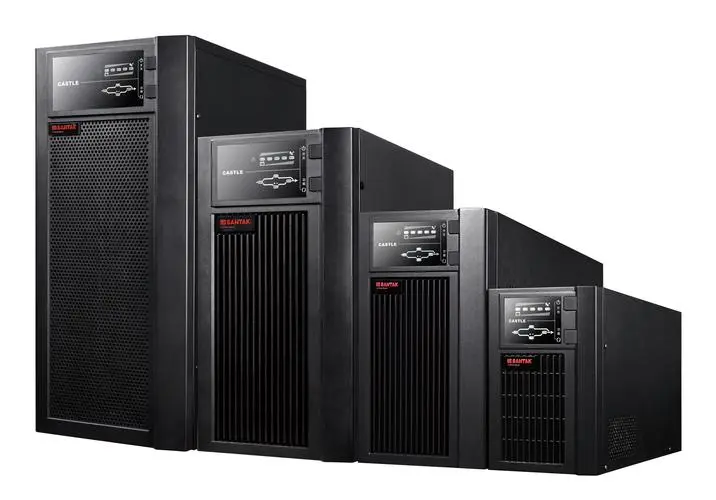Uninterruptible Power Supply (UPS) systems have become an essential component in various settings, ranging from homes to large industries, as they provide a reliable backup power source during electrical outages. One of the latest advancements in UPS technology involves the use of Lithium Iron Phosphate (LiFePO4) batteries, offering significant advantages over traditional battery technologies. In this article, we will explore the benefits of UPS systems equipped with LiFePO4 batteries, their applications, and important factors to consider when choosing such a system.
Introduction to UPS with LiFePO4 Battery
UPS systems act as a safeguard against power interruptions, ensuring continuous power supply to critical devices and equipment. They are widely used in residential, commercial, and industrial settings to prevent data loss, maintain productivity, and protect sensitive electronics. Traditionally, UPS systems have relied on lead-acid batteries, but the emergence of LiFePO4 batteries has revolutionized the industry.
Understanding LiFePO4 Battery Technology
LiFePO4 batteries are a type of lithium-ion battery that utilizes a cathode made of lithium iron phosphate. This composition offers several distinct advantages, making them a superior choice for UPS systems. LiFePO4 batteries are known for their enhanced safety, longer lifespan, high energy density, and rapid charging capabilities.
Advantages of LiFePO4 Batteries in UPS Systems
Enhanced Safety Features
LiFePO4 batteries are considered much safer compared to other battery chemistries. They are highly stable, resistant to thermal runaway, and have a lower risk of catching fire or exploding. This safety feature is of paramount importance, especially when UPS systems are installed in residential or commercial environments.
Longer Lifespan and Durability
LiFePO4 batteries exhibit an impressive lifespan, typically lasting up to ten times longer than traditional lead-acid batteries. With proper maintenance, they can withstand a significantly higher number of charge-discharge cycles, making them a reliable long-term investment for UPS systems.
High Energy Density and Efficiency
LiFePO4 batteries offer a higher energy density, meaning they can store more energy in a smaller footprint. This compactness allows for UPS systems with LiFePO4 batteries to have a smaller physical size while delivering the same or higher power output. Additionally, LiFePO4 batteries have a high charge retention rate and low self-discharge, ensuring that the stored energy remains accessible for longer durations.
Rapid Charging and Discharging Capability
LiFePO4 batteries support fast charging and discharging rates, allowing UPS systems to quickly respond to power outages or fluctuations. This capability ensures a seamless transition from the main power source to the battery backup, minimizing downtime and providing uninterrupted power to connected devices.
Compatibility with Renewable Energy Sources
As the world shifts towards renewable energy, LiFePO4 batteries play a vital role in energy storage systems. UPS systems equipped with LiFePO4 batteries can be seamlessly integrated with solar panels or wind turbines, allowing for efficient energy utilization and reducing dependency on the grid.
Cost-effectiveness of LiFePO4 Batteries
While LiFePO4 batteries have a higher upfront cost compared to lead-acid batteries, their long lifespan and lower maintenance requirements make them a cost-effective solution in the long run. The reduced need for battery replacements and the overall reliability of UPS systems equipped with LiFePO4 batteries contribute to lower operating expenses.
Applications of UPS with LiFePO4 Battery
UPS systems with LiFePO4 batteries find applications in various settings due to their exceptional performance and advantages. Let’s explore some of the common applications:
UPS for Residential Use
In residential settings, UPS systems with LiFePO4 batteries provide uninterrupted power supply to essential appliances, such as refrigerators, air conditioning units, and home office equipment. They ensure that critical systems continue to function during power outages, protecting valuable data and preventing inconvenience.
UPS for Commercial Use
Commercial establishments, including offices, retail stores, and healthcare facilities, heavily rely on continuous power supply. UPS systems equipped with LiFePO4 batteries offer reliable backup power, enabling seamless operations, protecting sensitive equipment, and ensuring uninterrupted customer service.
UPS for Industrial Use
Industries that involve manufacturing processes, data centers, or critical infrastructure require UPS systems capable of handling high power loads and providing uninterrupted power. LiFePO4 batteries’ high energy density and rapid response make them an ideal choice for such industrial applications.
Factors to Consider When Choosing a UPS with LiFePO4 Battery
When selecting a UPS system with LiFePO4 batteries, several factors should be taken into account:
- Power Requirements: Determine the power capacity needed to support the connected devices during an outage.
- Runtime: Assess the required backup runtime to ensure the UPS system can sustain the load until power is restored.
- Scalability: Consider the ability to expand the system in the future to accommodate additional devices or increased power demands.
- Monitoring and Management: Look for UPS systems with advanced monitoring and management features to remotely monitor battery health and system performance.
- Manufacturer Reputation: Choose reputable manufacturers known for producing high-quality UPS systems and LiFePO4 batteries.
Conclusion
UPS systems with LiFePO4 batteries offer numerous advantages, including enhanced safety, longer lifespan, high energy density, and rapid charging capabilities. These advanced batteries have found applications in residential, commercial, and industrial settings, ensuring uninterrupted power supply and protecting critical equipment. When choosing a UPS system with LiFePO4 batteries, it is crucial to consider power requirements, runtime, scalability, monitoring features, and the manufacturer’s reputation. Embracing this modern UPS technology can provide peace of mind during power outages and contribute to sustainable and reliable power infrastructure.
